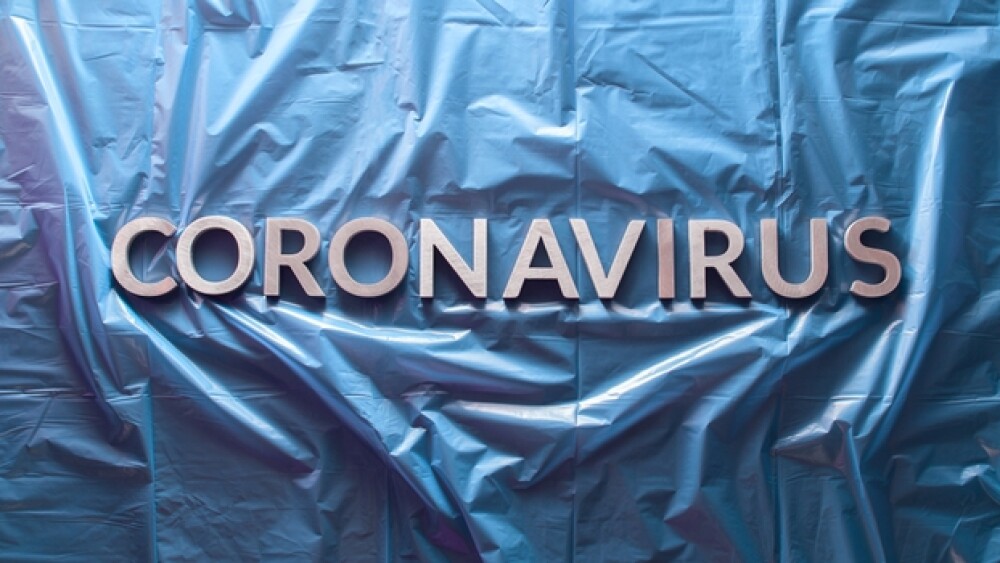ViralClear Chief Executive Officer Nick Spring told BioSpace that the preclinical work is “telling a very good story.”
In four months, there have been more than 100,000 COVID-19-related deaths in the United States and as the nation grapples with re-opening the economy, hopes are still holding out for the approval of drugs and a vaccine against the disease caused by the novel coronavirus.
Although there is hope that a vaccine can be unprecedentedly accelerated through clinical development by the end of the year, it is unknown how quickly such a vaccine could be scaled and delivered to enough people to create something of a herd immunity – 90% of the global population by some estimates. In the meantime, other medications are being aimed at the disease, including some antivirals, such as Gilead Sciences’ remdesivir that has received Emergency Use Authorization from the U.S. Food and Drug Administration earlier this year. Other drugs are in development, including a broad spectrum antiviral about to enter Phase II studies. The antiviral drug, merimepodib, is under development by startup company ViralClear Pharmaceuticals, a subsidiary of BioSig Technologies.
ad
In preclinical studies of the asset against COVID-19, researchers were stunned to discover highly significant results. The molecule demonstrated an ability to reduce viral replication of SARS-CoV-2 by 98%. When combined with Gilead Sciences’ remdesivir, it reduced viral production of SARS-CoV-2 to undetectable levels in pre-clinical testing. ViralClear Chief Executive Officer Nick Spring told BioSpace that the preclinical work is “telling a very good story.” Based on his long experience in the pharmaceutical industry, including a long-time run with Merck’s vaccines division, Spring said what has been seen in the preclinical work should be able to be replicated in the clinic when it is tested on COVID-19 patients. While merimepodib was impressive on its own in the early studies, Spring was particularly excited about the results when it was combined with remdesivir.
“The idea of combination therapies is probably the right way to go,” Spring said.
Through another subsidiary, NeuroClear Technologies, parent company BioSig acquired the asset in March with a goal of driving it into the clinic. Following an FDA review of an Investigational New Drug Application filed by ViralClear in April, the company is quickly advancing into a Phase II study of merimepodib oral solution in adults with COVID-19 who are hospitalized and either require supplemental oxygen or are on non-invasive ventilation or high flow oxygen devices. This study will be a randomized, double blind, placebo-controlled trial to evaluate the efficacy and safety of merimepodib as an orally administered treatment. The trial will occur in hospitalized patients who have confirmed infection with SARS-CoV-2 and require supplemental oxygen.
“Of the therapies that are currently being evaluated as treatments and can be available in the short term, we believe that a broad-spectrum antiviral that is orally administered and widely available could be very helpful in addressing the COVID-19 pandemic,” Spring said.
Spring said that the COVID-19 pandemic is one of the worst and most frightening health crises in his lifetime. He has had several friends who have contracted the disease who reported mild to moderate discomfort. However, he shared that a former colleague from Merck succumbed to complications related to the virus following his admission into an intensive care unit in a hospital.
Merimepodib was originally under development for chronic Hepatitis C by Vertex Pharmaceuticals and had undergone multiple early-stage clinical trials. Those trials demonstrated the safety of the drug in people, which is what helped propel merimepodib straight into Phase II studies in such a short time. Spring anticipated a quick trial and speculated that results could be in hand by the end of summer. If all goes well in Phase II, the asset could quickly be moved into Phase III and potentially into the hands of patients early next year.
“We should know something in two to three months,” Spring said.
The Phase II study is being financed in part from a $10.8 million common stock financing conducted by BioSig earlier this month.





